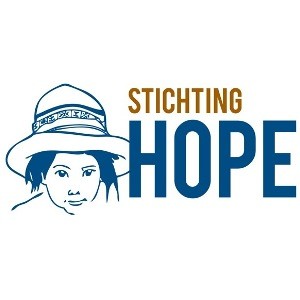Roadmap to a Resource Efficient Europe
20 september 2011
CHALLENGES AND OPPORTUNITIES FOR EUROPE
Europe has enjoyed many decades of growth in wealth and wellbeing, based on intensive use of resources. But today it faces the dual challenge of stimulating the growth needed to provide jobs and well-being to its citizens, and of ensuring that the quality of this growth leads to a sustainable future. To tackle these challenges and turn them into opportunities our economy will require a fundamental transformation within a generation – in energy, industry, agriculture, fisheries and transport systems, and in producer and consumer behaviour. Preparing that transformation in a timely, predictable and controlled manner will allow us to further develop our wealth and wellbeing, whilst reducing the levels and impact of our resource use.
Over the 20th century, the world increased its fossil fuel use by a factor of 12, whilst extracting 34 times more material resources. Today in the EU, each person consumes 16 tonnes of materials annually, of which 6 tonnes are wasted, with half going to landfill. Trends show, however, that the era of plentiful and cheap resources is over. Businesses are facing rising costs for essential raw materials and minerals, their scarcity and price volatility are having a damaging effect on the economy. Sources of minerals, metals and energy, as well as stocks of fish, timber, water, fertile soils, clean air, biomass, biodiversity are all under pressure, as is the stability of the climate system. Whilst demand for food, feed and fibre may increase by 70% by 2050, 60% of the world’s major ecosystems that help produce these resources have already been degraded or are used unsustainably. If we carry on using resources at the current rate, by 2050 we will need, on aggregate, the equivalent of more than two planets to sustain us, and the aspirations of many for a better quality of life will not be achieved.
Our economic system still encourages the inefficient use of resources by pricing some below true costs. The World Business Council for Sustainable Development estimates that by 2050 we will need a 4 to 10 fold increase in resource efficiency, with significant improvements needed already by 2020. Some dynamic businesses have recognised the benefits of a more productive use of resources, yet many enterprises and consumers have not yet realised the scale and urgency of the required transformations. Promoting efficient use of resources makes a lot of business sense and should help improve their competitiveness and profitability. It is therefore an integral part of the EU's agenda for global competitiveness. It also helps ensure a sustainable recovery from the economic crisis and it can boost employment.
Transformation will need a policy framework that creates a playing field, where innovation and resource efficiency are rewarded, creating economic opportunities and improved security of supply through product redesign, sustainable management of environmental resources, greater reuse, recycling and substitution of materials and resource savings. Decoupling growth from resource use and unlocking these new sources of growth needs coherence and integration in the policies that shape our economy and our lifestyles. Action on climate change has already led the way in helping to decouple growth from the use of carbon.
The Europe 2020 Strategy and its flagship initiative on "A Resource Efficient Europe"1 set the EU on the path to this transformation. The flagship called for a roadmap "to define medium and long term objectives and means needed for achieving them". This Roadmap builds upon and complements the other initiatives under the flagship, in particular the policy achievements towards a low carbon economy, and takes into account progress made on the 2005 Thematic Strategy on the Sustainable Use of Natural Resources2 and the EU's strategy on sustainable development. The Roadmap should also be seen in the context of worldwide efforts to achieve a transition towards a green economy3. It draws extensively on a range of sources which are referenced in the accompanying Staff Working Document, including the European Environment Agency's report on the state and outlook for the European Environment.
